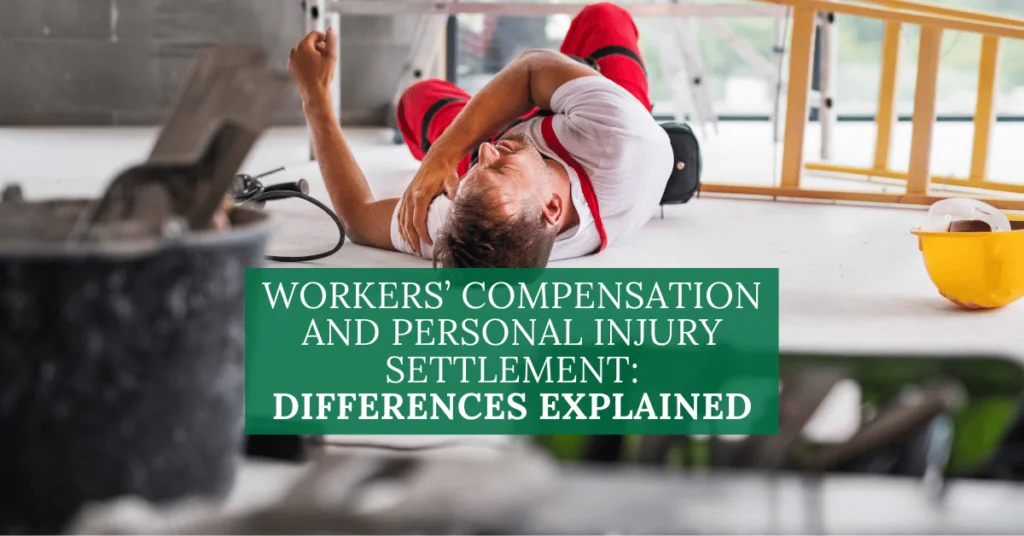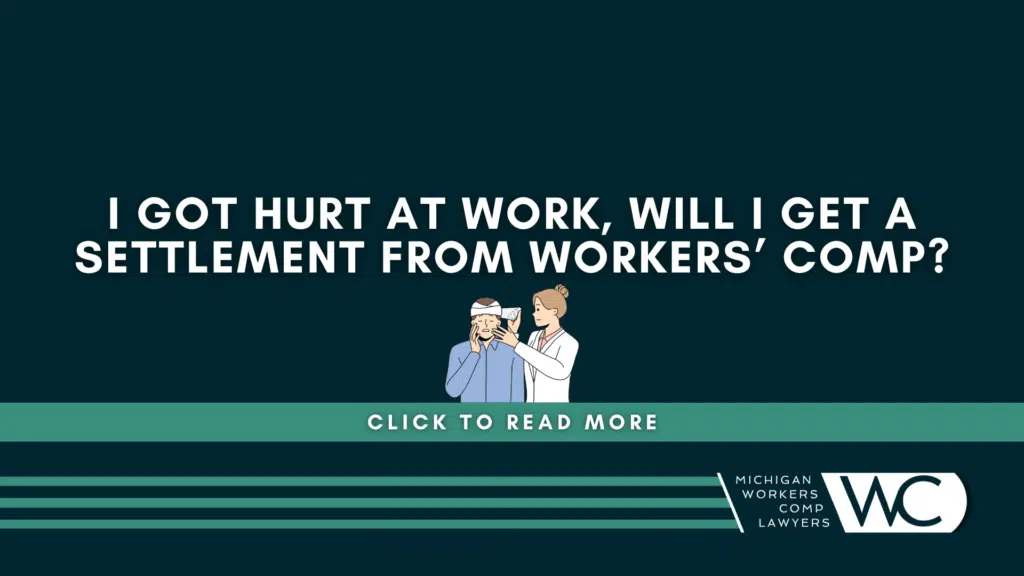
Michigan lawyer explains the differences between a workers’ compensation and personal injury settlement.
We understand the stress and worry that goes along with a workplace injury. Most of our clients have never considered what happens if they got hurt on-the-job. Will they get lost wages? Who pays for their medical bills? These concerns are amplified tenfold when an insurance company disputes payment based upon some nonsensical reason. Uncertainty about the future is a major factor when thinking about a workers’ comp settlement. Here is some information about workers’ compensation and personal injury settlement that every employee hurt on-the-job should know.
About Workers’ Comp
Michigan law guarantees workers’ comp to employees regardless of fault. Benefits include a percentage of lost wages, medical treatment, and vocational rehabilitation. Damages for pain and suffering are not allowed. This is part of the grand bargain and is a compromise between labor and business.
Many of our clients are confused between a workers’ compensation and a personal injury settlement. When injured employees are told about their legal rights they are upset to learn an employer who was negligent cannot be held accountable in a civil lawsuit. We tell them workers’ compensation is a not a perfect system, but it does act as a basic safety net.
Disabled employees often want to settle their workers’ comp claims. This means trading future benefits for a lump sum cash payment. Money can be used for any purpose including medical treatment, education, job search efforts, starting a business, paying off debt, or retirement.
Most people are thrilled to settle their workers’ comp claims because it removes any uncertainty in the process. It is also possible to get many years of disability payments upfront and then immediately return to other gainful employment. This is an indirect way of getting compensated for the trouble caused.
Workers’ Compensation vs Personal Injury Settlement
The difference between a workers’ compensation and personal injury settlement is that individuals who are hurt on-the-job cannot sue their employers for pain and suffering.
Injured employees are limited by the exclusive remedy provision and can only collect lost wages, medical, and vocational rehabilitation. However, they are permitted to sue a negligent third-party and can seek additional damages.
We see this occur when someone is hurt in a work-related car accident. The employee can seek workers’ compensation benefits and even settle this claim for a lump sum cash payment. He or she can also go after the at-fault driver and seek additional damages. Workers’ compensation will have a potential lien against money recovered from the at-fault driver.
Employees hurt on-the-job can also seek a personal injury settlement from other negligent parties. For example, a manufacturer who designed or maintained a machine that was dangerous. Any money paid would be in addition to what could be obtained from workers’ compensation.
It is important to understand how a workers’ compensation and personal injury settlement differ. This will ensure the most amount of money is recovered. An experienced lawyer can make sure all possible sources of recovery are investigated and minimize any payback to workers’ compensation.
Michigan Workman’s Comp Lawyers never charges a fee to evaluate a potential case. Our law firm has represented injured and disabled employees exclusively for more than 35 years. Call (844) 316-8033 for a free consultation today.
Related information:
MMI And Workers’ Comp: What You Need To Know

